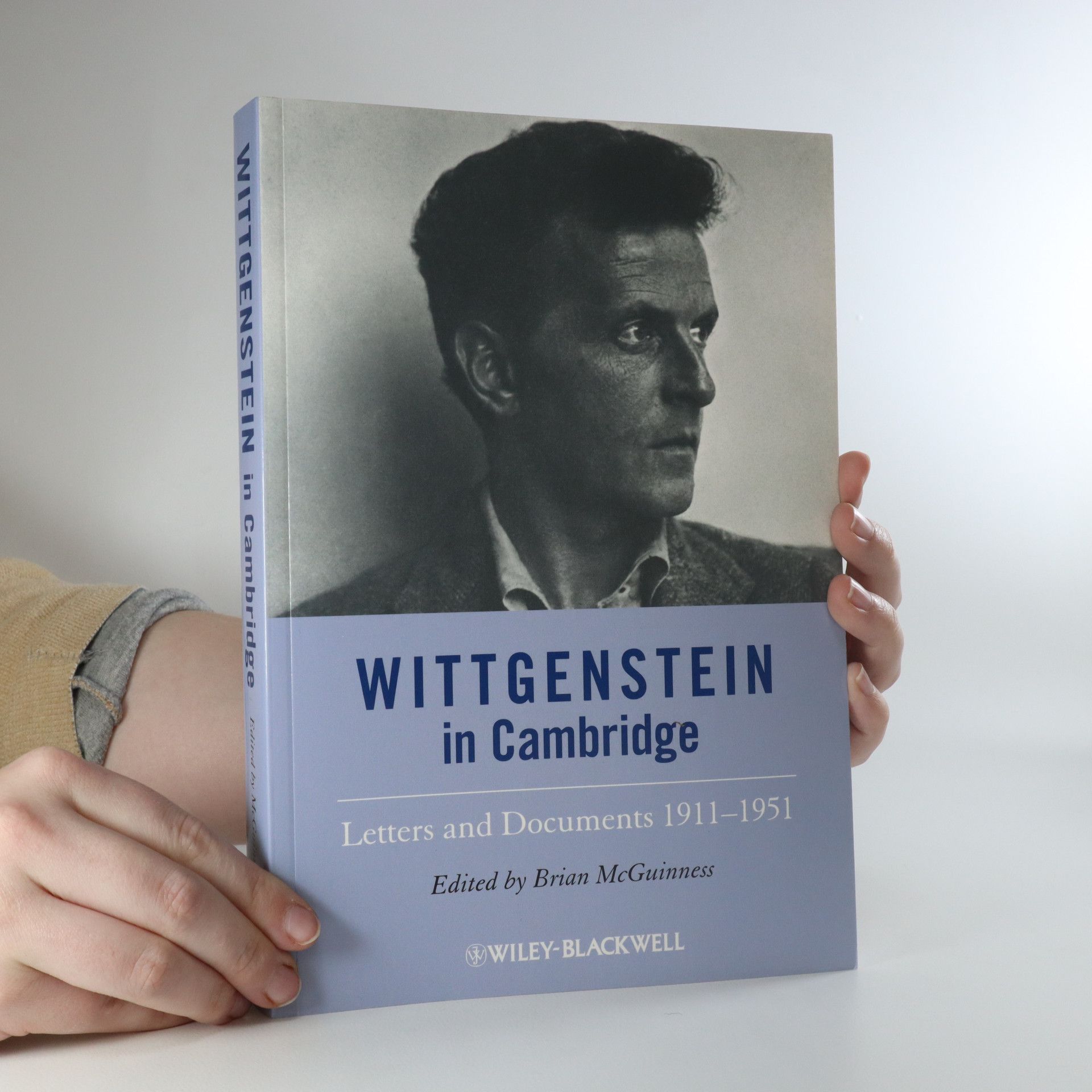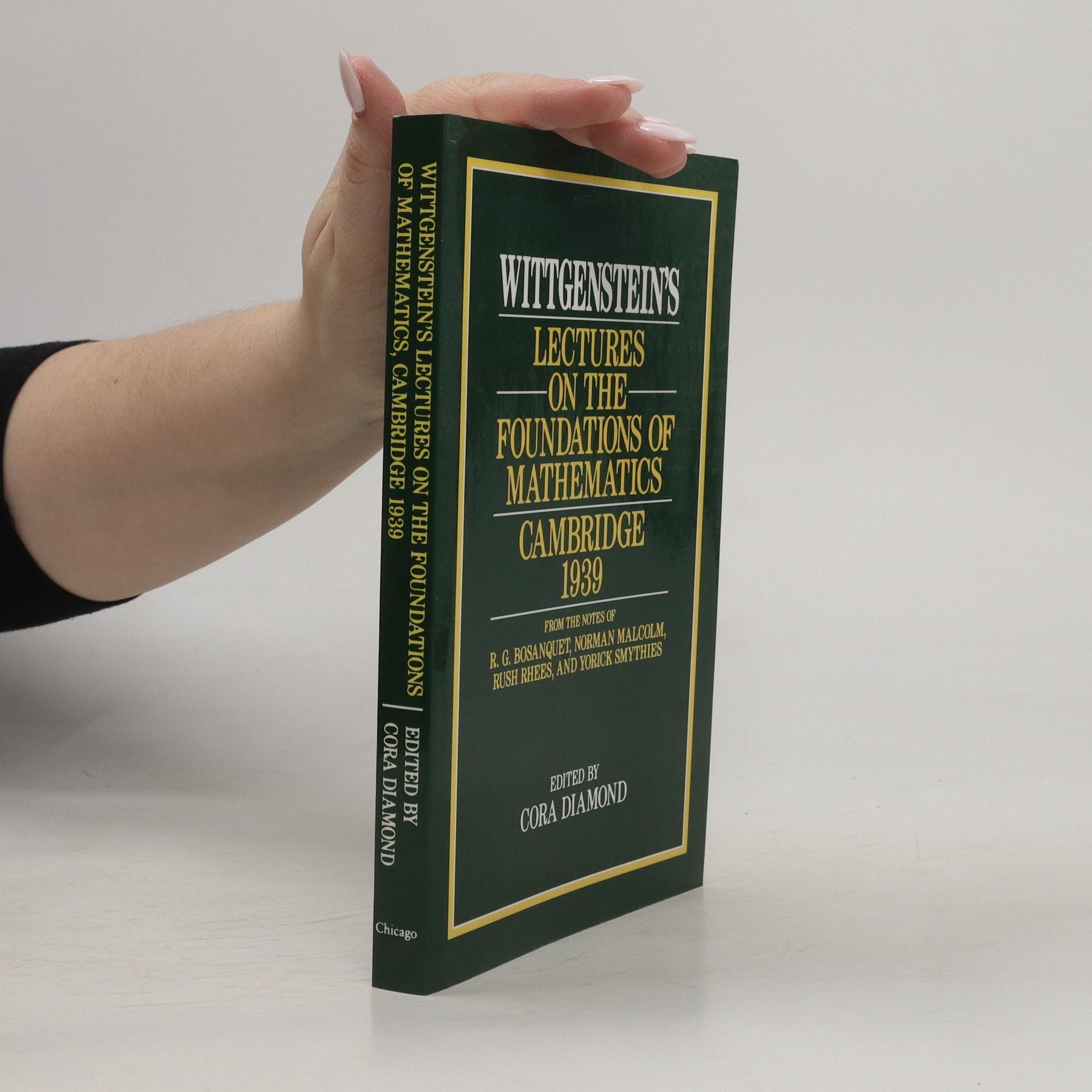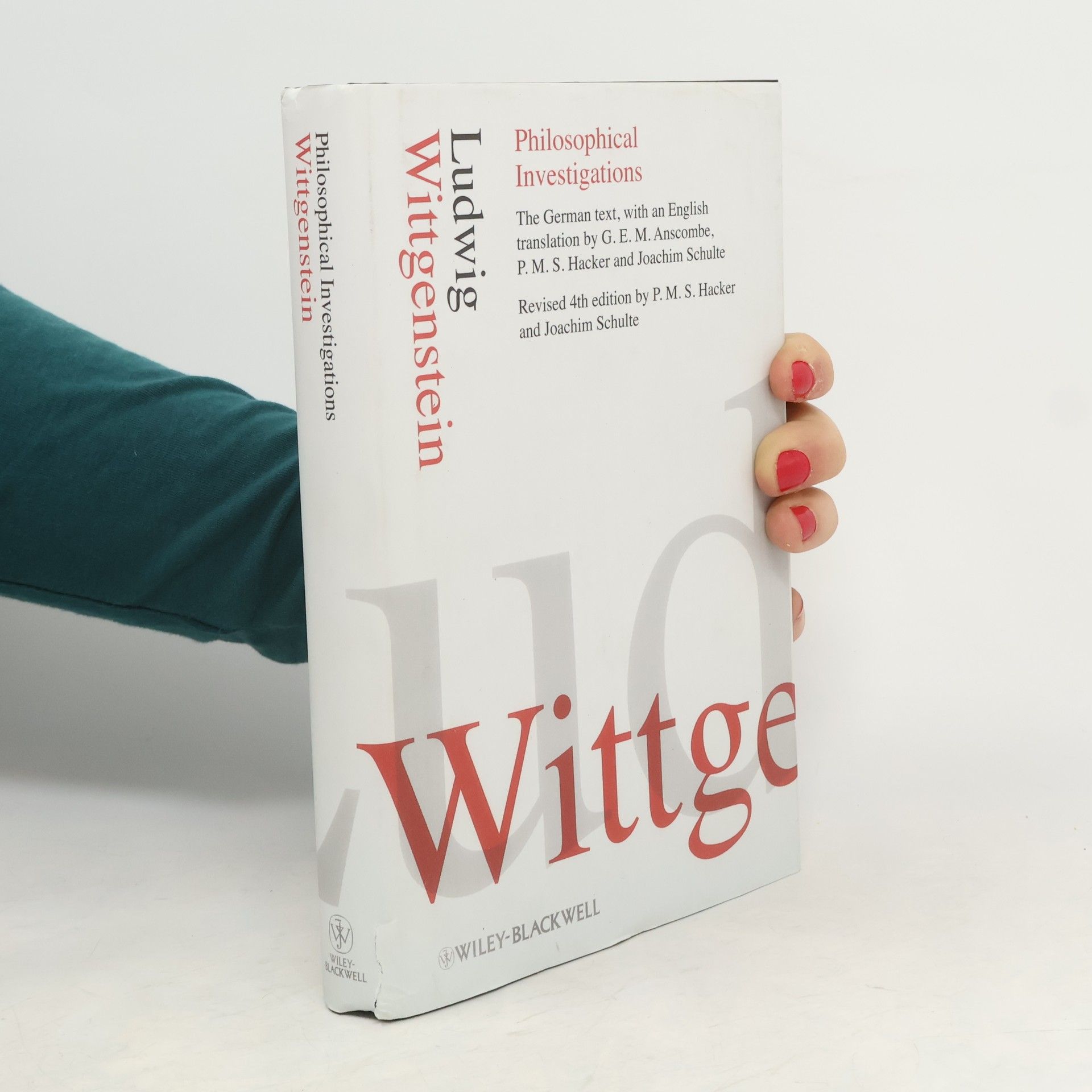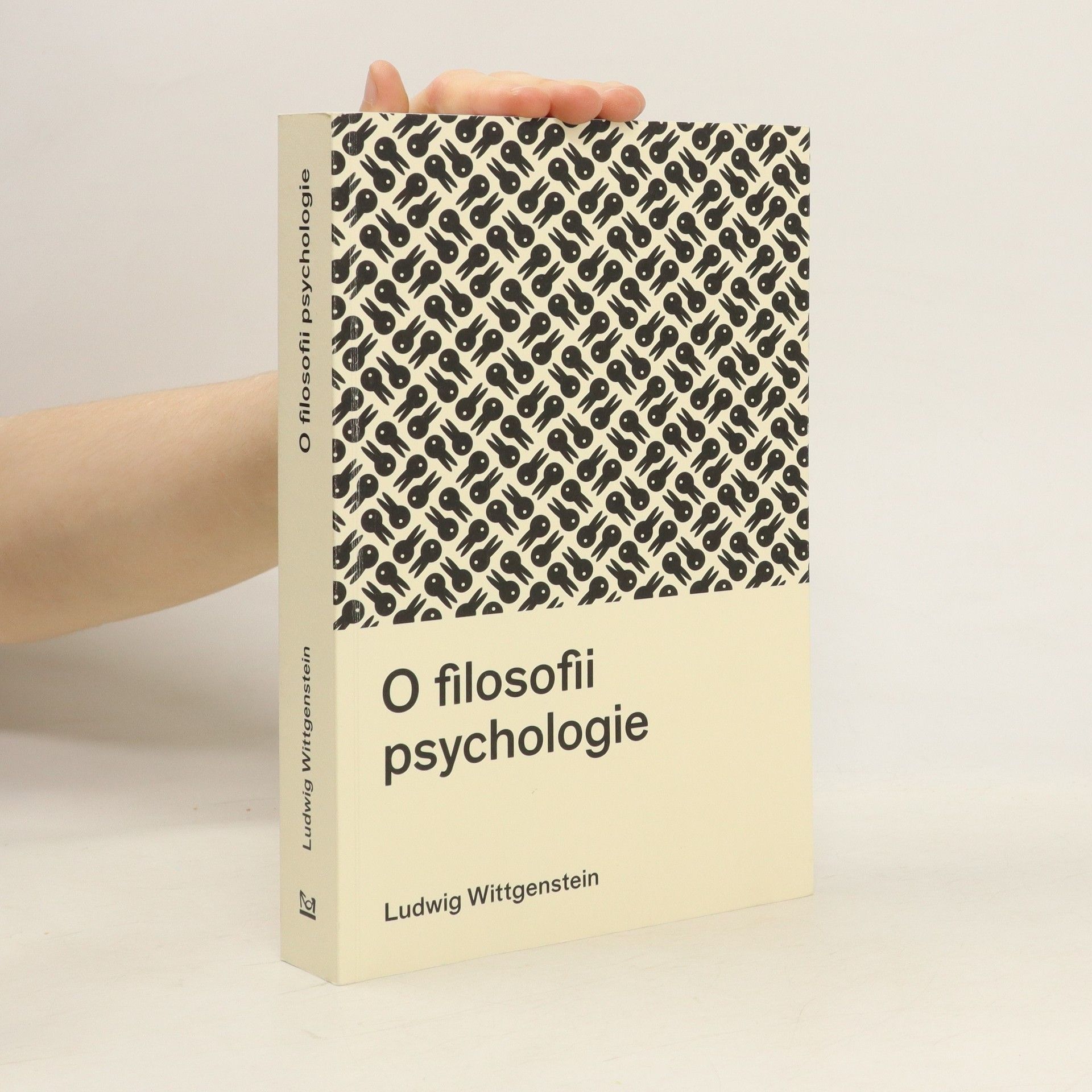Im Tractatus logico-philosophicus entwickelt Ludwig Wittgenstein eine logische Theorie und eine philosophische Methode, die darauf abzielt, die Philosophie von Unsinn und Verwirrung zu befreien. Wittgenstein argumentiert, dass viele philosophische Sätze und Fragen nicht falsch, sondern schlichtweg unsinnig sind. Dieses Werk stellt einen grundlegenden Beitrag zur analytischen Philosophie dar und fordert eine klare und präzise Sprache, um die Grenzen des Denkens und Sprechens zu erkunden.
Ludwig Wittgenstein Book order (chronological)
Wittgenstein was an Austrian-British philosopher whose work centered on logic, the philosophy of mathematics, mind, and language. He was considered a genius whose ideas inspired two principal philosophical movements of the 20th century. His works are ranked among the most important philosophical texts of the 20th century, with one standing out as a masterpiece appealing across diverse specializations and philosophical orientations. Wittgenstein's influence has extended into nearly every field of the humanities and social sciences, though his thought is subject to widely diverging interpretations.







In diesem Buch wird Wittgensteins Prozess der Entwicklung seiner philosophischen Gedanken von 1929 bis 1933 dokumentiert. Es zeigt seine Manuskriptbände, Synopsen und die Entstehung des Big Typescripts. Viele handschriftliche Anmerkungen bleiben unvollständig und werden in einem elektronischen Apparat bereitgestellt.
Vortrag über Ethik & Tagebücher
- 162 pages
- 6 hours of reading
"Anstatt zu sagen, »die Ethik ist die Untersuchung dessen, was gut ist«, hätte ich sagen können, die Ethik ist die Untersuchung dessen, was wertvoll ist oder was sehr wichtig ist; oder aber ich hätte sagen können, die Ethik ist die Untersuchung des Sinns des Lebens oder des lebenswerten Lebens oder des richtigen Lebens." Wittgenstein in seiner "Lecture on Ethics" vor Studierenden der Heretics Society an der University of Cambridge. Gröls-Klassiker (Edition Werke der Weltliteratur)
Zettelsammlung aus den Synopsen der Manuskriptbände I bis X
- 252 pages
- 9 hours of reading
Mit seiner Rückkehr nach Cambridge und zum philosophischen Schreiben Ende Januar 1929 plant Wittgenstein, seine neueren Gedanken in einem zweiten Buch zu veröffentlichen. In den zehn Manuskriptbänden, die er von 1929 bis 1932 verfasst hat (WA 1 bis 5), kennzeichnet er die Bemerkungen, die er übernehmen möchte, und diktiert sie in zwei Synopsen (WA 7 und 8). Vor dem Zerschneiden der Synopsen in einzelne Zettel macht er handschriftliche Anmerkungen, wie Seitenreferenzen, Umstellungen und Ergänzungen. Diese Zettel ordnet er neu und bündelt sie unter handschriftlichen Titeln in 19 Kapitel mit 140 Sektionen, aus denen er im März 1933 in Wien das sogenannte Big Typescript diktiert (WA 11). Der Band WA 10 verdeutlicht eindrucksvoll Wittgensteins gedankliche Entwicklung von den Manuskriptbänden über die Synopsen hin zu seinem geplanten Buch. Nur wenige der handschriftlichen Anmerkungen aus den Synopsen wurden in diesen Band aufgenommen, da sie den Text unnötig belastet hätten. Viele dieser Anmerkungen sind aufgrund des Zerschneidens unvollständig, und es bedarf weiterer Forschungsarbeit zu ihrer richtigen Einordnung. Daher werden sie in einem begleitenden elektronischen Apparat veröffentlicht.
>>I think of you constantly with love …<<
Briefwechsel Ludwig Wittgenstein – Ben Richards 1946–1951
Ludwig Wittgenstein zählt zu den bedeutendsten Philosophen des 20. Jahrhunderts. Sein „Tractatus logico-philosophicus“ und seine „Philosophischen Untersuchungen“ haben die moderne Philosophie grundlegend verändert. Trotz seines philosophischen Ruhms bleibt er als Mensch weniger greifbar. Im Herbst nach dem Zweiten Weltkrieg lernt Wittgenstein in Cambridge den Medizinstudenten Ben Richards kennen, und ihre Beziehung prägt sein Leben bis zu seinem Ende. 374 erhaltene Briefe, Ansichtskarten und Telegramme aus den Jahren 1947 bis 1951 sind stille, aber bewegende Zeugen dieser tiefen Freundschaft und Liebe. Wittgenstein teilt seine Freude über schöne Erlebnisse und Musikstücke mit Richards und sendet ihm Blumen, um ihm den Tag zu erhellen. Ihre Liebe ist beglückend, doch das Warten auf Antworten belastet ihn. Die ständige Angst vor dem Ende der Beziehung zu einem jüngeren Mann verfolgt ihn. In dieser Zeit reflektiert er oft über seinen seelischen Zustand und sein Verhältnis zu Richards, notiert seine Gedanken in einem Code, um den Inhalt zu verbergen. Wittgensteins Briefe geben Einblick in die individuelle Liebesgeschichte zweier Menschen und zeugen von der Liebe zwischen zwei Männern in einer Zeit, in der diese nicht geduldet wurde.
Wittgenstein's diary from the 1930s contains the raw material for what could have been an incomparable spiritual autobiography. For the first time in an affordable edition, the volume includes updated and expanded editorial notes on Wittgenstein's many allusions, and an introd...
Betrachtungen zur Musik
- 253 pages
- 9 hours of reading
Bemerkungen zur Musik ziehen sich durch Wittgensteins gesamtes Werk. Das Hören einer Melodie und die Unmöglichkeit, ihren Eindruck zu beschreiben, beschäftigte den Philosophen im Zuge seiner endlosen Versuche, sich über den Charakter des Verstehens und des Meinens klar zu werden. Ob der Wechsel einer Tonart mit der Veränderung des Gesichtsausdrucks vergleichbar ist oder ob Musik überhaupt etwas mitteilt – durch die Hintertür der philosophischen Untersuchung kommt Wittgenstein ihrem Sprachcharakter auf die Spur.Der Komponist Walter Zimmermann hat die Notizen thematisch geordnet und aus Stichwörtern wie »Gesang«, »Grammophon«, »Harmonik« bis »Stille«, »Thema« und »Töne« ein musikalisches Wittgenstein-ABC geschaffen. Das inspirierende, höchst originelle Buch ist unentbehrlich für alle, die noch immer rätseln, warum es so schwer ist, sich redend über musikalische Eindrücke zu verständigen, während beim Spielen alles ganz klar und einfach ist.
O filosofii psychologie
- 516 pages
- 19 hours of reading
Private Notebooks: 1914-1916
- 432 pages
- 16 hours of reading
Written in code under constant threat of battle, Wittgenstein's searing and illuminating diaries finally emerge in this first-ever English translation
Im Vorwort zur Logisch-Philosophischen Abhandlung schreibt Wittgenstein: "Wenn diese Arbeit einen Wert hat, so besteht er in Zweierlei. Erstens darin, daß in ihr Gedanken ausgedrückt sind, und dieser Wert wird um so größer sein, je besser die Gedanken ausgedrückt sind. Je mehr der Nagel auf den Kopf getroffen ist." Diese Präzisierung wird besonders sichtbar in Wittgensteins Taschennotizbüchern, wo seine Bemerkungen oft in mehreren Versionen existieren, zumeist in sprunghafter Abfolge, in einer Art status nascendi. Die den Manuskriptbänden VI bis IX (WA3 bis WA5) voraufgehenden Notizbücher MSS 153a, 153b, 154 und 155 aus der Zeit von 1931 bis 1932 sind erhalten und werden mit diesem Band erstmals veröffentlicht. Bei der Übernahme in die Manuskriptbände ändert Wittgenstein die Abfolge der Bemerkungen, mit dem Zweck, wie er im Vorwort zu den Philosophischen Untersuchungen schreibt, "daß darin die Gedanken von einem Gegenstand zum andern in einer natürlichen und lückenlosen Folge fortschreiten sollten". Und damit einher gehen oftmals weitere Präzisierungen, nicht zuletzt auch in einem poetischen Sinn, denn, wie Wittgenstein schreibt: "Den richtigen Stil schreiben heißt, den Wagen genau aufs Geleise setzen." [2. März 1940]
